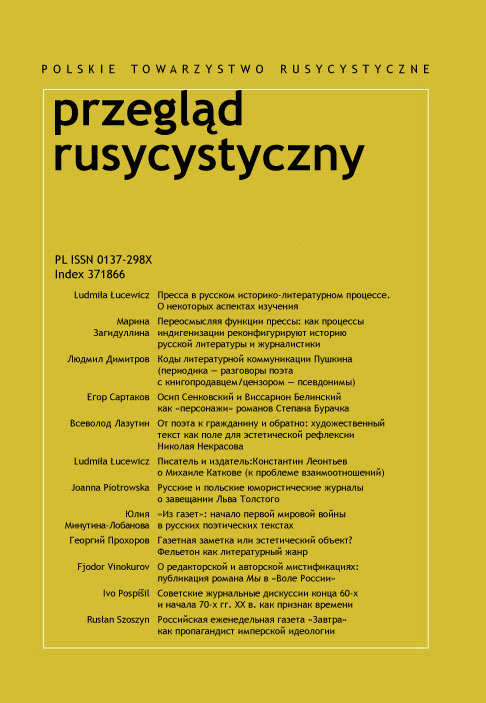Глоттодидактические аспекты кросскультурного образования и коммуникации
Glottodidactic aspects of intercultural education and communication
Author(s): Tadeusz PacholczykSubject(s): Language and Literature Studies
Published by: Polskie Towarzystwo Rusycytyczne
Summary/Abstract: The present article is devoted to glottodidactic aspects of intercultural education and oral communication in this respect. In the introductory remarks the author emphasises that intercultural education through the foreign language correlates not only with the basic assumptions of modernising the teaching/learning of foreign languages, put forward by the Council of Europe, but most of all with the humanistic aspects of the teaching content, which should aim at shaping the homo moralis and homo communicus. The following general determinants are distinguished in the exploration of the problem: cognitive, psychological, didactic-sociocultural and pedagogical. Then the author characterises in detail the so-called base determinants, i.e. the intercultural and linguistic-cultural competencies, and discusses the factors determining the shaping of these competencies. The so-called base determinants constitute, as a matter of fact, a kind of subcompetencies within a global foreign language communicative competence. This is a basis to formulate a number of glottodidactic implications concerning intercultural education and oral communication, which the author draws in the final part of the article.
Journal: Przegląd Rusycystyczny
- Issue Year: 2006
- Issue No: 116
- Page Range: 115-124
- Page Count: 10
- Language: Russian

